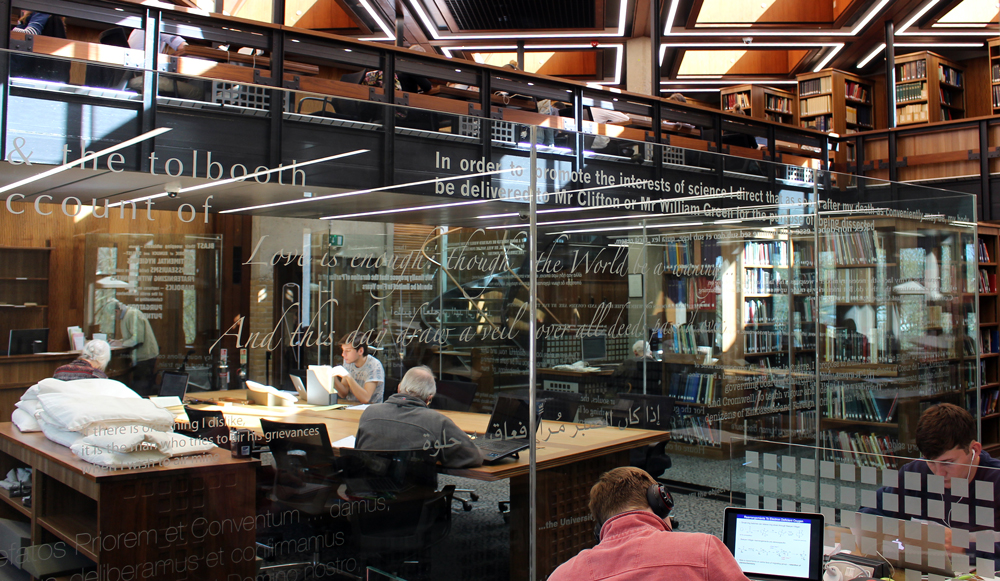Research Support

Why use archives and special collections?
Using archives and special collections in your research project can be incredibly rewarding. You may be looking at a document that has not been touched for a long time or you may stumble upon something no one else has noticed before. Even well-known manuscripts, maps, documents or rare books may offer new insights depending on your research question.
Academics and external partners
Our archivists and early printed book curators have a wealth of skills, knowledge and experience they can bring to any research project, whether it is advising on relevant sources to consult or working with you as research partners on grant applications or REF impact work.
Find out more about what we can offer: What can ASC offer in research collaborations.docx.
Research support for students
We provide tailored advice to help you to research using archives and special collections for your essays and dissertations. We currently run annual classes for history students to showcase our collection strengths for dissertation research, and plan to expand these to other disciplines. We also offer more bespoke training support to undergraduate and postgraduate students in using our online catalogue to search for our holdings.
Where to start?
If you already have an idea about a topic for your research, you may like to have a look at our Collection guides and do a search in Discover to see if we have relevant material. Our page on understanding original documents and rare books may be useful to check if you need special skills to use your sources. We are also happy to give advice if you need further help.
If you are uncertain about a topic or you are struggling to find relevant sources, talk to your supervisor and get in touch with us to see if we can give you a hand. The Library has also developed a short course on preparing for your dissertation research.
Please also take a look at the guides to our collections, which cover the themes for which we have particularly good sources.
Further information
For research support enquiries, please email pg.library@durham.ac.uk


/prod01/prodbucket01/media/durham-university/library-/archives-and-special-collections/75794.jpg)